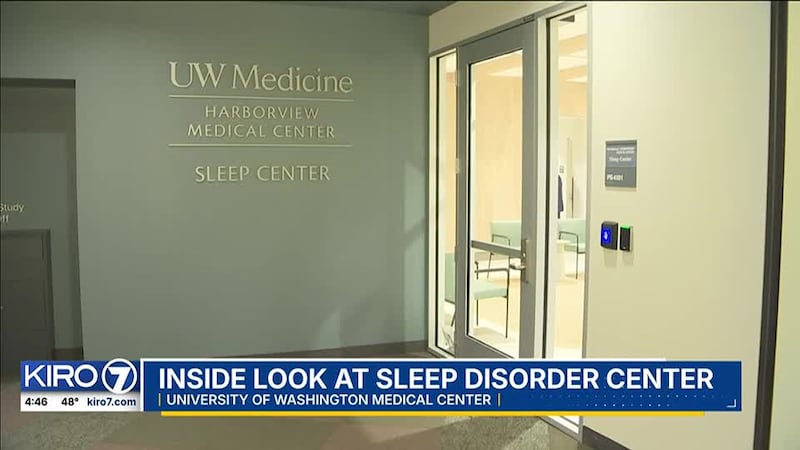Sleep is often a huge challenge for many, and in several cases, people do need some sort of medical intervention.
The University of Washington (UW) Medicine Sleep Center has opened a new facility. It’s an expansion and redesign of our state’s only Academic Sleep Center.
One patient, Jerome Hewlett, has lived with sleep apnea for years. He now has a device called ‘Inspire’ implanted in him that he can regulate using a remote control. Hewlett believes it has worked for him and encourages others to speak with their doctor about whether it would work for them, too.
“You don’t realize that you could be sleeping for eight hours but when you get tested you actually only slept for one or two.”
Another patient, Stacy Edwards, spent years trying to manage her sleep apnea. She now advocates for a group called ‘Project Sleep’ which has created a network of support for sleep apnea patients.
She says the idea of taking sleep and sleep disorders seriously needs some work.
“I think sleep really isn’t valued in society,” she told KIRO 7.
Not only are there challenges living with sleep apnea; it can be difficult to find treatment, too.
“There is an issue of being able to get to someone especially if you’re not in downtown Seattle or the surrounding areas,” Hewlett told KIRO 7.
Edwards also says people have trouble even getting to see a sleep doctor.
“Getting the initial referral is hard unless you ask for it… the wait times are very long.”
Both patients and advocates know the science and study of sleep is often overlooked. That could change somewhat with UW Medicine’s new Academic Sleep Center.
“It’s exciting a little disorienting,” says Dr. Vishesh Kapur, the Director of the UW Med Sleep Center.
Kapur helped found the center in the 1990s when he saw a need for it at UW Medicine. He says the old sleep center was located close to the emergency department of Harborview Medical Center and was split between locations and in rooms that weren’t all specifically geared for sleep research.
Kapur says the new facility changes that, “a number of sleep physicians in the community have been trained by us.”
KIRO 7 got a tour of the sleep center ahead of the opening. Kapur says the exam rooms now have all the right equipment and feel like they are geared toward sleep disorder treatment and research.
There are sleep study rooms that mimic hotels for people who will be monitored for an in-clinic sleep study.
There are rooms geared towards people who have difficulty getting into bed, whether it’s because of a disability or other factors says Dr. Kapur,
The new sleep center added numerous telehealth stations to communicate with people who can’t make it into the clinic.
A vast majority of sleep studies to diagnose new patients are now done via kits that are taken home. Dr. Kapur says that the system gives patients the freedom to do the testing at home and not spend a night in the clinic. It is also a convenient option for people who live far from the clinic and can’t make it to Seattle for an in-clinic study.
Nearly a dozen clinicians and dozens more researchers will work at the new sleep center, and the facility is already planning to expand says Kapur. “We’re recruiting more providers. The research done here will benefit the science of sleep.”
Both Hewlett and Edwards are glad that the new center is highlighting a topic that they feel needs much greater attention.
Edwards says her goal is to also bolster that network of people who can support each other through their treatment of sleep apnea. She says getting to a sleep physician is one of the first key steps.
“Having more access in the state definitely is going to help for sure.”
©2025 Cox Media Group








